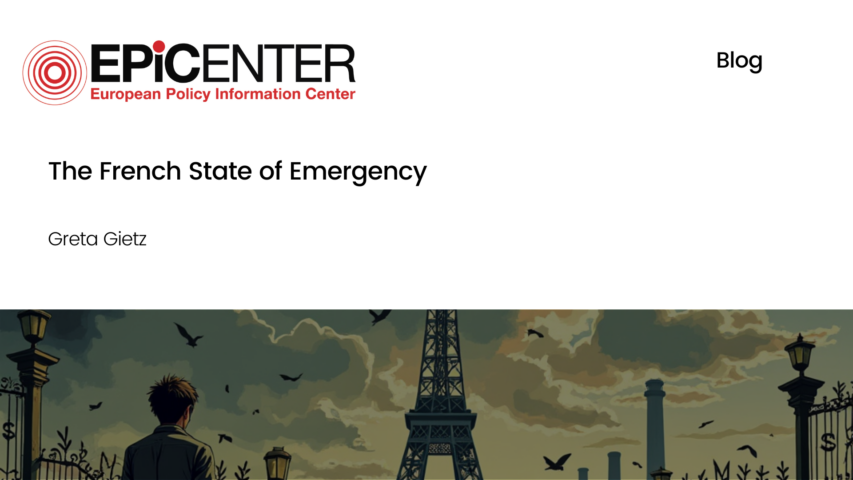The French State of Emergency

The French State of Emergency
Greta Gietz // 28.01.2016
With the migrant crisis preoccupying Europe’s media and public debates, France’s “economic and social emergency” is easily forgotten.
France reported a 10.6 per cent unemployment rate in April 2015, a shocking number for the second-largest economy in the Eurozone. By contrast, the EU-wide average is 9.8 per cent and Germany’s is at an impressive 4.2 per cent. Compounding the emergency is the French youth unemployment rate: at least one in four people below the age of 25 are unemployed, with many of them moving between temporary jobs and internships. The New York Times has dubbed the young and educated class who are struggling to find permanent jobs the “floating generation.” They are not paying taxes or owning property because the economy fails to integrate graduates into the workforce.
French unemployment has fluctuated between 8 and 11 per cent for the better part of the last 30 years, suggesting labour market dysfunctions are pushing up joblessness. The causes lie with structurally ingrained aspects of the French economy. The labour market is rigid and difficult to enter with a tax system that makes it very expensive for employers to hire full-time employees as well as to fire them. In 2000, the French government implemented the 35-hour work week limiting and infringing upon the productivity of workers. Overall, the economy is suffering from low output and paltry annual growth of less than 1 per cent.
The Financial Times reported that North African and Middle Eastern refugees are actively trying to avoid settling in France due to its high unemployment rate, complex and long asylum application process and the rising influence of the xenophobic Front National. Instead, the majority head to Germany and the Nordic countries where economic prospects are much brighter. There were only about 100,000 asylum applications, one per one thousand local people, in France last year. Sweden had about 13 per one thousand local people.
In his last year in office before possibly running for another term, beleaguered President Hollande has been hit hard with the fight against terrorism and the failing economy. Last week, he pledged €2 billion to subsidize small companies for hiring a young or unemployed person for 6 months or more and to fund a job creation plan through which 500,000 vocational training schemes will be created, which will simply remove half a million from the unemployment rate.
Hollande addressed the inflexibility of the French labour market by saying, “the goal [of the job creation plan] is also more security for the company to hire, to adapt its workforce when economic circumstances require, but also more security for the employee in the face of change and mobility.” This combination of flexibility of the labour market and security for workers, also known as “flexicurity,” has been a successful model in Denmark. The approach combines aspects of the free market system – labour market deregulation to ease hiring and firing and lower structural unemployment – and the coordinated market system – generous income support for the unemployed and those retraining – to encourage supply-side liberalisation and less distortive demand-side solutions. The European Commission sees flexicurity as a way for Europe to uphold its social welfare model while improving its global competitiveness and has tried to promote its adoption by more European countries, especially to drive economic recovery post-2008.
Hollande’s plan, presented just 14 months before the election and unlikely to bear fruit before then, threatens to be of more political than economic importance. However, France desperately needs to reform its stagnant economy to fight unemployment, the ghettoization of the country’s poor and economically marginalized in banlieues and to confront the rising tide of protectionism and illiberalism propounded by Marine Le Pen’s National Front.
EPICENTER publications and contributions from our member think tanks are designed to promote the discussion of economic issues and the role of markets in solving economic and social problems. As with all EPICENTER publications, the views expressed here are those of the author and not EPICENTER or its member think tanks (which have no corporate view).



